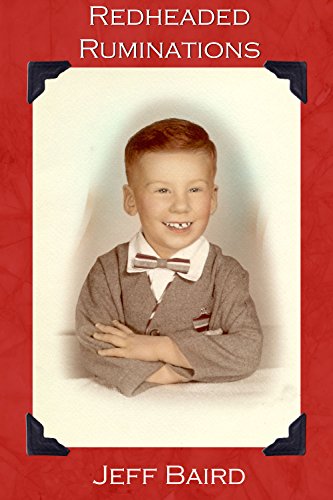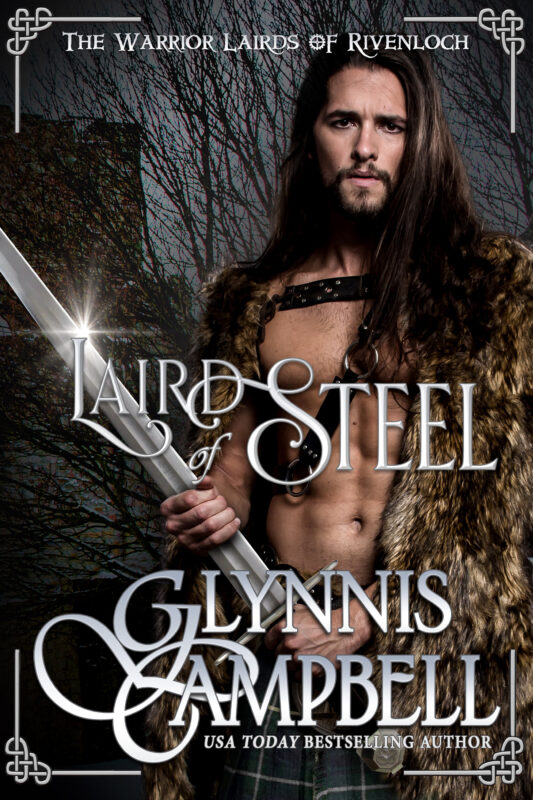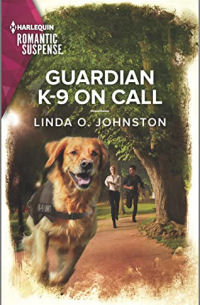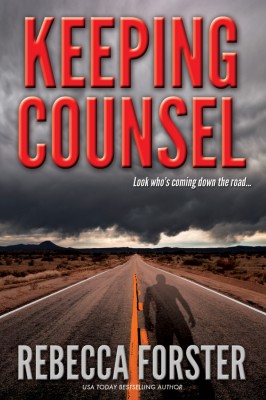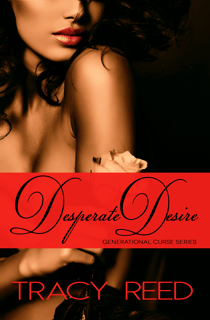Alina K. Field October Featured Author
October 1, 2020 by Alina K. Field in category Featured Author of the Month tagged as Alina K. Field, boxed sets, October Featured Author, Regency Romances
Award winning author Alina K. Field earned a Bachelor of Arts Degree in English and German literature, but her true passion is the much happier world of romance fiction. Though her roots are in the Midwestern U.S., after six very, very, very cold years in Chicago, she moved to Southern California and hasn’t looked back. She shares a midcentury home with her husband, her spunky, blonde, rescued terrier, and the blue-eyed cat who conned his way in for dinner one day and decided the food was too good to leave.
She is the author of several Regency romances, including the 2014 Book Buyer’s Best winner, Rosalyn’s Ring. She is hard at work on her next series of Regency romances, but loves to hear from readers!
Visit Alina
In addition to Quarter Days, Alina’s quarterly column’s on A Slice of Orange, you can visit her at:
Books by Alina K. Field
Dear Extra Squeeze Team, Can I Keep My Cover, Please?
September 30, 2020 by The Extra Squeeze in category The Extra Squeeze by The Extra Squeeze Team tagged as indie authors, old book, re-releasing books
Dear Extra Squeeze Team, I am an indie writer with an old book that I want to re-release…should I try to keep the cover the same as the original edition?
Robin Blakely
PR/Business Development coach for writers and artists; CEO, Creative Center of America; member, Forbes Coaches Council.
Probably not, unless the book is an iconic bestseller with the kind of visual recognition status that makes it identifiable by sight to the masses. In most cases, an old book will need a fresh opportunity in the modern marketplace. That fresh opportunity will likely mean that you need to get a new cover and a new author photo. Give the work a fresh new start. That new start will also likely mean brushing up the description of the book with an eye toward why it is important for today’s readers. It could also include some current endorsements from people who resonate with the readers of the current year. That is not to say bury or drop old endorsements but be aware that younger readers may not know who past icons are, especially if those icons are no longer active or no longer living. Leverage everything you have available to make the cover stand out on digital platforms. Look at the product with new eyes and new expectations.

Rebecca Forster
USA Today Bestselling author of 35 books, including the Witness series and the new Finn O’Brien series.
I love makeovers! Not only do I have forty books on my backlist, and all have had cover makeovers, but the author has too. Nope, I didn’t go under the knife, I just changed and grew with the times. Fashions change, the way books are viewed has changed, delivery methods have changed. Today your covers need to pop as thumbnails online in an ever-more crowded field, so give your work every advantage. Embrace marketplace changes. Have fun. Enjoy the process. If there are elements of the original covers you love keep them, but make them fresh (are you even sure you have the rights to the artwork?) I say go for it. I say go for it!

Jenny Jensen
Developmental editor who has worked for twenty plus years with new and established authors of both fiction and non-fiction, traditional and indie.
I’m going to assume (yikes! Danger Will Rogers) that by “old” you mean the book was first released at least 3 years ago. Yes, refresh, re-boot, revise, re-work that cover.
We’ve all been told not to judge a book by its cover. I think that is a cosmic fallacy right up there with ‘one size fits all’. An enticing cover draws me in — at least enough to read the blurb. With an Indie release a good cover says something about the author. It speaks of quality and suggests a promising story. In fact, I bought my two most favorite novels on the basis of the cover.
Take a good look at the covers of books in your genre and the ratings each has received. That will give you an idea of what sort of imagery is selling. Is it a literal graphic depiction or more impressionistic? Consider what is selling. Go from there.
If the original release was highly successful and you feel the cover was a part of that, you could simply update the original look. Covers are like fashion — ever changing and then rolling around to a previous era, only with a ‘modern’ sensibility. One has only to look at the original Agatha Christie covers and those on offer today to see that.
Give your cover design the attention it deserves
H.O. Charles
Cover designer and author of the fantasy series, The Fireblade Array
It depends on the rights and cover quality. If the publisher paid for the cover, then they likely own the rights. Sometimes the artist will withhold the right to re-sell certain designs or use them as they see fit. It really depends on the deal originally made. If the cover is very good, this is worth pursuing. If it’s even half-average, I’d plump for a new cover to be safe. Just so happens I know a designer…

Ever wonder what industry professionals think about the issues that can really impact our careers? Each month The Extra Squeeze features a fresh topic related to books and publishing.
Amazon mover and shaker Rebecca Forster and her handpicked team of book professionals offer frank responses from the POV of each of their specialties — Writing, Editing, PR/Biz Development, and Cover Design.
Read Rebecca Forster September Featured Author
September 29, 2020 by Rebecca Forster in category Featured Author of the Month tagged as Book Sales, Finn O'Brien Thrillers, Rebecca Forster., September Featured Author, thrillers
Read Rebecca Forster!
On September 15th, Rebecca announced she signed with Wolfpack Publishing. (Read about it here.) Good news for Rebecca, and good news for readers. Until September 30, 2020 Rebecca is have a sale on select titles.
On Sale Until September 30th: The Finn O’Brien Thriller Series
Also on Sale are Rebecca’s Single Title Thrillers

Rebecca marketed a world-class spa when it was still called a gym, did business in China before there were western toilettes at the Great Wall and mucked around with the sheep to find out exactly how her client’s fine wool clothing was manufactured. Then she wrote her first book and found her passion.
Now, over twenty-five books later, she is a USA Today and Amazon bestselling author and writes full-time, penning thrillers that explore the emotional impact of the justice system. She earned her B.A. at Loyola, Chicago and her MBA at Loyola, Los Angeles. Rebecca has taught the Business of Creativity at University of California Long Beach Writers Certificate Program, UCLA and UC Irvine extension. Married to a Los Angeles Superior Court judge, she is the mother of two grown sons and spends her free time traveling, sewing, and playing tennis.
Remember the books are only on sale until September 30, 2020
Happy Fall… Or is it autumn?!
September 28, 2020 by Alina K. Field in category Quarter Days by Alina K. Field, Writing tagged as American English, British English, historical fiction, Spelling and Punctuation, writing craftA Quarter Days’ Post
Greetings! I’m back for my quarterly post about various and sundry things related to writing historical fiction.
In my last post I talked about the delights of playing with words and creating Tom Swifties.
Today I’m talking about the difference between English and English, as in American vs. British.
Is it fall? Or is it autumn? More on that later.

What’s in your tool kit?
Words are the building blocks we writers and speakers use to create story. We start hoarding those blocks early, and the resulting vocabulary says much about our own personal settings—where we grew up, what our social milieu is, what our family is like.
A case in point—my grandkids’ first words. We waited with bated breath for each munchkin’s first spoken vocabulary word. I coached them repeatedly (and unsuccessfully) to say “mama”.
But for both of them the first word was… DOG! (Yes, we do love our dogs.)

Fledgling writers
are taught “write what you know”. I wonder why? It’s a lot more fun to step outside the known world. But it does lead to challenges.
The biggest challenge: You don’t know what you don’t know.
For a 21st century American like me trying to set a story in Georgian England, there are a million opportunities to err.
First there’s the issue of etymology. Was a word used during this story’s time period?
A couple of examples from a Regency first draft I was beta reading for a friend:
- Hooligan: a great word, right? Unfortunately it dates to the 1890s.
- Foyer: Sadly, this dates to 1859.
And a couple from my own first drafts:
- Merry Widow: as my editor pointed out, this phrase references Franz Lehar’s operetta’s English title from 1907. Just a tad later than the Regency!!!
- Shack: Not only is this a later word (1878) but it’s of American or Canadian origin.
Which brings up another potential pitfall for the fledgling Regency Romance author.
American vs. British
Americans and Brits may speak the same language, but we use different words.

I’m fortunate to work often with an editor in England, and so I’ve compiled my own list of Americanisms for my own pre-editing purging.
Some more examples:
This very funny post from a British writer complete with illustrations.
And a list of 60 American English words translated into British English.
Spelling and punctuation are different too.
Once, long ago, while reading one of Georgette Heyer’s books, I wondered why they kept writing “cosy” instead of “cozy”. Why had so many misspellings slipped past the editor?
The British spelling was different enough to make it a jarring read for this ignorant and unaware American who happens to be a good speller. Fortunately, I’m wise to them now.
There are also punctuation differences. Here’s a short post about some of those.
And a long one about spelling differences.
I don’t believe Regency readers will pillory an author over this issue, so I’ve settled on using American spelling and punctuation in my stories.
One might say, in this area at least, I’m writing what I know!
Do you suppose we’ll ever go “one-world” on the spelling and punctuation rules?
Happy fall (and autumn) to everyone, and I’ll be back in December!
Images credits: autumn leaves and dog are from Stencil (I’d happily claim that dog though!); image of words is from Wikimedia Commons.
Passing by
September 26, 2020 by Neetu Malik in category Poet's Day by Neetu Malik
Passing by
dusk casts its veil gently
as I walk along
this quiet street
under winged elms shedding
flaky white blossoms
at my feet
the hour is my own
no one here to nettle my peace
other walkers, far and few,
wave or smile occasionally
people come and people leave
I have learned to let them be
for on these intersecting trails
we’re passersby, you and I
© Neetu Malik
Affiliate Links
A Slice of Orange is an affiliate with some of the booksellers listed on this website, including Barnes & Nobel, Books A Million, iBooks, Kobo, and Smashwords. This means A Slice of Orange may earn a small advertising fee from sales made through the links used on this website. There are reminders of these affiliate links on the pages for individual books.
Search A Slice of Orange
Find a Column
Archives
Featured Books
LAIRD OF STEEL
Gellir faces the one intrepid warrior he may not be able to conquer.
More info →DESPERATE DESIRE
How desperate do you have to be, to break your marriage vows?
More info →Newsletter
Contributing Authors
Search A Slice of Orange
Find a Column
Archives
Authors in the Bookstore
- A. E. Decker
- A. J. Scudiere
- A.J. Sidransky
- Abby Collette
- Alanna Lucus
- Albert Marrin
- Alice Duncan
- Alina K. Field
- Alison Green Myers
- Andi Lawrencovna
- Andrew C Raiford
- Angela Pryce
- Aviva Vaughn
- Barbara Ankrum
- Bethlehem Writers Group, LLC
- Carol L. Wright
- Celeste Barclay
- Christina Alexandra
- Christopher D. Ochs
- Claire Davon
- Claire Naden
- Courtnee Turner Hoyle
- Courtney Annicchiarico
- D. Lieber
- Daniel V. Meier Jr.
- Debra Dixon
- Debra H. Goldstein
- Debra Holland
- Dee Ann Palmer
- Denise M. Colby
- Diane Benefiel
- Diane Sismour
- Dianna Sinovic
- DT Krippene
- E.B. Dawson
- Emilie Dallaire
- Emily Brightwell
- Emily PW Murphy
- Fae Rowen
- Faith L. Justice
- Frances Amati
- Geralyn Corcillo
- Glynnis Campbell
- Greg Jolley
- H. O. Charles
- Jaclyn Roché
- Jacqueline Diamond
- Janet Lynn and Will Zeilinger
- Jeff Baird
- Jenna Barwin
- Jenne Kern
- Jennifer D. Bokal
- Jennifer Lyon
- Jerome W. McFadden
- Jill Piscitello
- Jina Bacarr
- Jo A. Hiestand
- Jodi Bogert
- Jolina Petersheim
- Jonathan Maberry
- Joy Allyson
- Judy Duarte
- Justin Murphy
- Justine Davis
- Kat Martin
- Kidd Wadsworth
- Kitty Bucholtz
- Kristy Tate
- Larry Deibert
- Larry Hamilton
- Laura Drake
- Laurie Stevens
- Leslie Knowles
- Li-Ying Lundquist
- Linda Carroll-Bradd
- Linda Lappin
- Linda McLaughlin
- Linda O. Johnston
- Lisa Preston
- Lolo Paige
- Loran Holt
- Lyssa Kay Adams
- Madeline Ash
- Margarita Engle
- Marguerite Quantaine
- Marianne H. Donley
- Mary Castillo
- Maureen Klovers
- Megan Haskell
- Melanie Waterbury
- Melisa Rivero
- Melissa Chambers
- Melodie Winawer
- Meriam Wilhelm
- Mikel J. Wilson
- Mindy Neff
- Monica McCabe
- Nancy Brashear
- Neetu Malik
- Nikki Prince
- Once Upon Anthologies
- Paula Gail Benson
- Penny Reid
- Peter Barbour
- Priscilla Oliveras
- R. H. Kohno
- Rachel Hailey
- Ralph Hieb
- Ramcy Diek
- Ransom Stephens
- Rebecca Forster
- Renae Wrich
- Roxy Matthews
- Ryder Hunte Clancy
- Sally Paradysz
- Sheila Colón-Bagley
- Simone de Muñoz
- Sophie Barnes
- Susan Squires
- T. D. Fox
- Tara C. Allred
- Tara Lain
- Tari Lynn Jewett
- Terri Osburn
- Tracy Reed
- Vera Jane Cook
- Vicki Crum
- Writing Something Romantic
Affiliate Links
A Slice of Orange is an affiliate with some of the booksellers listed on this website, including Barnes & Nobel, Books A Million, iBooks, Kobo, and Smashwords. This means A Slice of Orange may earn a small advertising fee from sales made through the links used on this website. There are reminders of these affiliate links on the pages for individual books.








































